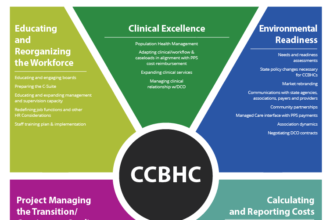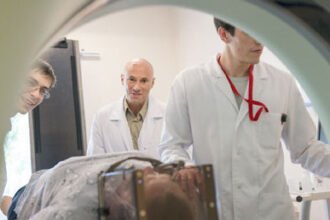The thrill of driving a deportive car—a sleek, high-performance vehicle designed for speed—can be exhilarating. Many car enthusiasts dream of feeling the rush of acceleration and the power of the engine beneath them. However, this excitement comes with a darker side, particularly when it leads to accidents. As the popularity of deportive cars rises, so do the risks associated with high-speed driving. Understanding the health implications of deportive car accidents is crucial, as they not only impact those directly involved but also have far-reaching effects on communities and healthcare systems.
In this blog, we will explore the physical injuries and mental health challenges resulting from deportive car accidents, as well as the broader societal impacts. By shedding light on these issues, we can foster a greater awareness of the importance of safe driving practices and advocate for measures that prioritize public health and safety.
The Allure of Speed and Its Dangers
Deportive cars are synonymous with speed, power, and luxury, captivating enthusiasts around the world. The sleek designs and cutting-edge technology of these vehicles create an allure that is hard to resist. Many drivers find themselves drawn to the thrill of high-speed driving, often underestimating the dangers associated with excessive speed. Based on knightlawfirm, as these vehicles become more accessible, the incidence of accidents involving deportive cars has risen, prompting a need for increased awareness and education about their risks.
The excitement of driving at high speeds can lead to reckless behavior, such as weaving in and out of traffic or ignoring traffic signals. Unfortunately, this often results in serious accidents that can have devastating consequences for drivers, passengers, and innocent bystanders. Recognizing the inherent dangers of deportive cars is essential for fostering a culture of safety and responsibility on the roads.
The Physical Toll: Common Injuries in Deportive Car Accidents
Injuries sustained in deportive car accidents can be severe, often resulting from the forces involved in high-speed collisions. Common physical injuries include traumatic brain injuries (TBIs), spinal cord injuries, broken bones, and internal organ damage. The impact of these accidents can lead to long-term health issues, including chronic pain, mobility limitations, and permanent disabilities. Many individuals face extensive medical treatment and rehabilitation, significantly affecting their quality of life.
In addition to immediate injuries, deportive car accidents can lead to secondary complications, such as infections or psychological conditions related to physical trauma. For example, a person with a spinal cord injury may require lifelong care, resulting in a substantial financial burden. These injuries not only affect the victims but also place a strain on healthcare systems, as the costs associated with treatment and rehabilitation can be overwhelming.
Mental Health Consequences: Beyond Physical Injuries
The aftermath of a deportive car accident extends beyond physical injuries, as many individuals experience profound psychological effects. Post-traumatic stress disorder (PTSD) is a common outcome for those involved in serious accidents. Victims may relive the traumatic event through flashbacks or nightmares, leading to heightened anxiety and avoidance behaviors. The mental health challenges associated with deportive car accidents are often overlooked, but they are equally important to address for comprehensive recovery.
Additionally, the emotional toll of an accident can affect relationships, work performance, and overall well-being. Survivors may struggle with feelings of guilt, anger, or depression, complicating their recovery process. Mental health support is essential for helping individuals navigate these challenges and rebuild their lives. By prioritizing mental health resources, we can improve the recovery outcomes for those affected by deportive car accidents and foster a supportive environment for healing.
The Broader Impact: Community Health and Safety
Deportive car accidents have implications that extend far beyond the individuals involved. When high-speed collisions occur, emergency services are often stretched thin as they respond to the scene. This strain on first responders can delay care for other emergencies, impacting community safety as a whole. Moreover, the healthcare costs associated with treating injuries from deportive car accidents can burden local hospitals and taxpayers, diverting resources away from other critical health services.
The societal implications of these accidents highlight the need for proactive measures to improve road safety. Communities can experience increased insurance premiums, higher healthcare costs, and a diminished sense of safety on the roads. By addressing the factors contributing to deportive car accidents, we can work towards creating safer environments for all road users, ultimately benefiting public health and community well-being.
Preventive Measures: Promoting Safe Driving Practices
To combat the dangers associated with deportive car accidents, it is essential to promote safe driving practices and awareness. Education plays a vital role in instilling a sense of responsibility among drivers. Initiatives such as driver safety courses, community workshops, and awareness campaigns can help educate individuals about the risks of speeding and the importance of adhering to traffic laws. Encouraging responsible driving behaviors can reduce the likelihood of accidents and save lives.
Additionally, advancements in technology, such as advanced driver-assistance systems (ADAS), can enhance vehicle safety. Features like automatic emergency braking, lane-keeping assistance, and collision avoidance systems can significantly reduce the risk of accidents involving deportive cars. By integrating these technologies into high-performance vehicles, manufacturers can help protect drivers and promote safer driving practices.
Conclusion: A Call to Action for Safety and Awareness
The allure of deportive cars often overshadows the significant health implications associated with high-speed driving. As we’ve explored, deportive car accidents can lead to severe physical injuries and profound mental health challenges, impacting not only the victims but also the broader community. By understanding these risks, we can foster a culture of safety that prioritizes responsible driving and public health.
It is essential for individuals, communities, and policymakers to work together in promoting awareness and implementing preventive measures. By advocating for safe driving practices and supporting mental health resources for accident victims, we can mitigate the consequences of deportive car accidents and create safer roads for everyone. Let us commit to driving responsibly and protecting our health and well-being on the road.









